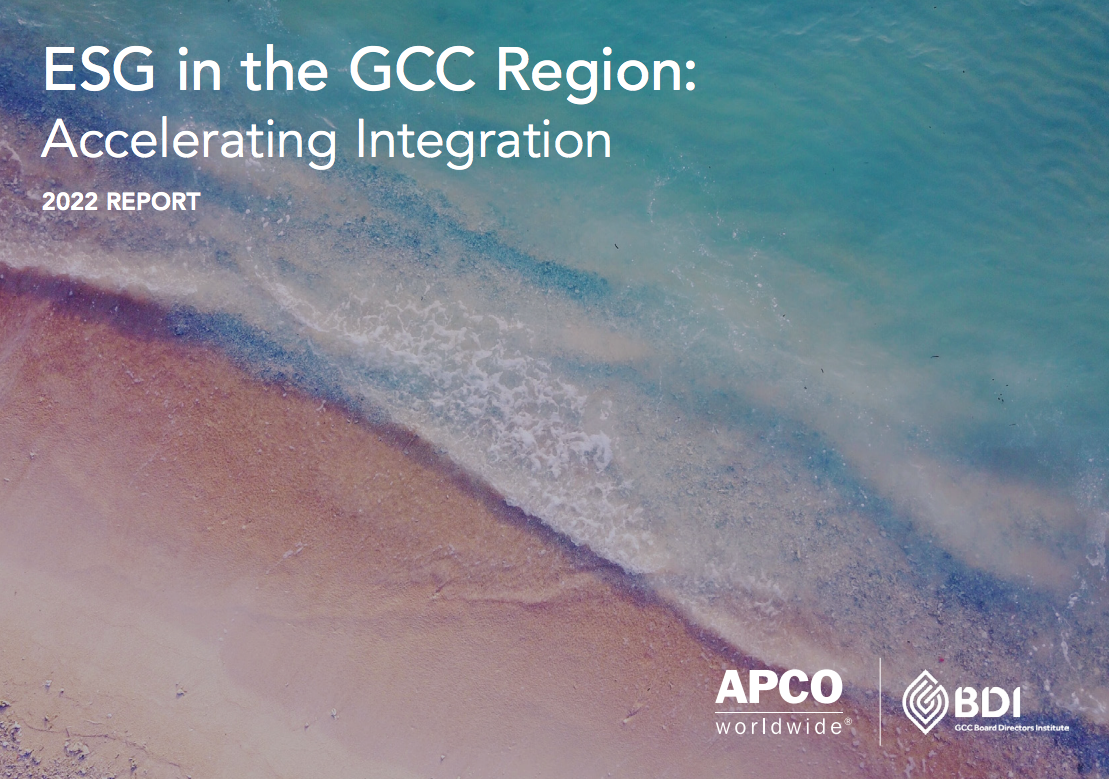 APCO Worldwide and GCC Board Directors Institute (GCC BDI) released the results of a joint study seeking to better understand where companies in the Gulf region are on their ESG journey, their priority issues and barriers to ESG implementation, Liam Clarke, senior director and head of APCO’s MENA Climate Practice, announced today.
APCO Worldwide and GCC Board Directors Institute (GCC BDI) released the results of a joint study seeking to better understand where companies in the Gulf region are on their ESG journey, their priority issues and barriers to ESG implementation, Liam Clarke, senior director and head of APCO’s MENA Climate Practice, announced today.
Do you want to know where the future of technology in advertising is heading? Or how to incorporate AI into marketing? Do you want to network with industry professionals in the fields of technology and AI? Then join us for our Campaign Breakfast Briefing: Tech and AI 2022. Click here to learn more and register.
“Now more than ever before, there is a heightened focus on ESG from regulators, investors, employees and even the general public,” Jane Valls, executive director of GCC BDI, said. “It is critical that boards take a proactive approach in centering ESG in corporate strategy discussions. This guide highlights the growing consensus around why ESG belongs in the boardroom—and why it’s here to stay.”
The survey found that companies are beginning to take action on ESG, but that a lack of transparency and standardised metrics remain major points of friction. ESG programs in the region have emerged largely as a reactive response to investor and stakeholder pressure. However, GCC-based public and private companies are just starting their ESG journeys, and there’s room for growth and development to understand and better utilize their data, the report found.
“This 2022 report showcases how mindsets surrounding ESG are rapidly shifting within the GCC region, underpinned by emergent risks and the need for strategic planning,” Clarke said. “APCO sees ESG as a catalyst for cross-sectoral collaboration around urgent social and environmental problems within the GCC region. We stand ready to support organizations of all sizes as they work to build their ESG capabilities strategically and emerge as global leaders in sustainability.”
Some of the key findings of the report include:
- ESG is mostly seen positively—largely due to the importance that GCC companies place on ESG’s impact on their reputation, risk and value creation.
- As government policies around ESG are rapidly evolving, GCC-based companies are still at the “start-up” phase of their ESG journey and grappling to understand, analyse and act upon their data.
- Most private companies are not reporting on their ESG goals, but more than half of listed companies that were surveyed are doing so.
- Reporting from both public and private companies primarily takes the form of an annual ESG report separate from financial reporting, or an integrated annual sustainability report.
As ESG strategies are implemented by the public and private sectors, they benefit from a deepening commitment to sustainability through opportunities to capitalise on ESG opportunities and an acceleration of the region’s net-zero goals.
To read more about the report click here.









